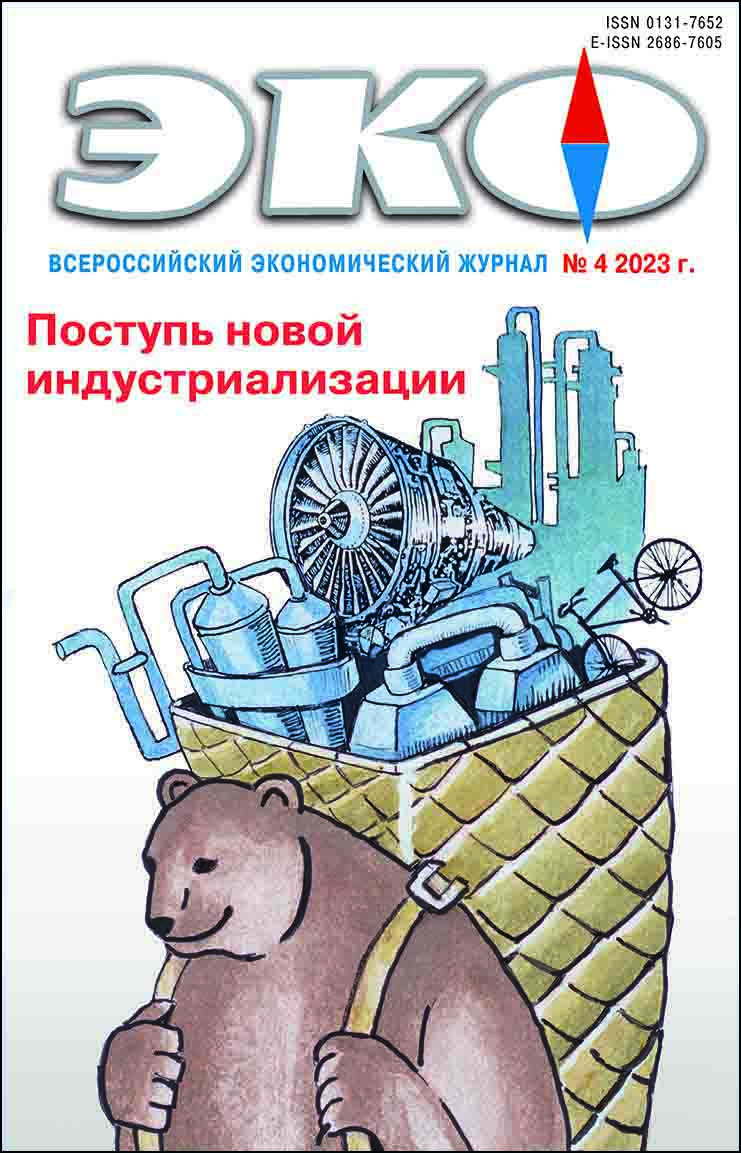ECONOMY SECTORS AND MARKETS
Published 2023-03-30
Keywords
- economic policy; agro-food sector; cheese market; food imports; embargo; protectionism
How to Cite
1.
Belova Т, Chernyshov И. The Situation in the Cheese Market Before and After the Food Embargo. ECO [Internet]. 2023 Mar. 30 [cited 2026 Feb. 18];53(4):93-116. Available from: https://ecotrends.ru/index.php/eco/article/view/4593
Abstract
The paper considers the processes of development of the Russian cheese market after the introduction of the food embargo in 2014 and in the conditions of import substitution policy. The analysis indicates a decrease in the volume and change in the structure of imports, the replacement of suppliers from Central and Western Europe by Belarusian and Latin American exporters, an increase in the consumer price and a significant decline in product quality. Using the example of the cheese market, the authors show that the import substitution processes take place at the expense of the consumer, as in other agri-food markets. Harmonization of relations in the cheese market, the authors believe, is possible with the return to the cheese market of its traditional producers from non-CIS countries. This will be possible with the introduction of changes to the list of products banned to be imported into Russia, and the subsequent targeted regulation of food markets using the tools of proper protectionism.References
- Белова Т. Н. «Заветные мысли» Д. И. Менделеева о внешней торговле и «правильном протекционизме» // Вопросы экономики. 2020. № 9. С. 120–139.DOI: 10.32609/0042–8736–2020–9–120–139
- Белова Т. Н. Искусство аграрной политики: протекционизм или свободная торговля? // ЭКО. 2017. № 5. С. 61–75. DOI: 10.30680/ECO0131–7652–2017–5–61–75
- Белова Т. Н. «Сладкие» и «горькие» аргументы в пользу правильного протекционизма // ЭКО. 2021. № 12. С. 78–96. DOI: 10.30680/ECO0131–7652–2021–12–78–96
- Бородин К. Г. Модель рынка дифференцированной продукции для формирования прогнозов его развития (на примере рынка сыра) // Экономика и математические методы. 2020. № 3. С. 68–78. DOI: 10.31857/S042473880010497–5
- Гумеров Р. Р., Гусева Н. В. Об эффектах и парадоксах импортозамещения в контексте национальной продовольственной безопасности // ЭКО. 2018. № 2. С. 90–102.DOI: 10.30680/ECO0131–7652–2018–2–90–102
- Конкина В. С. Экономическая доступность продовольствия в контексте проведения политики протекционизма // ЭКО. 2019. № 8. С. 103–117. DOI: 10.30680/ECO0131–7652–2019–8–103–117
- Менделеев Д. И. Заветные мысли / Полное издание (впервые после 1905 года). М.: Мысль, 1995. 311 с.
- Овчинников О. Г. Регулирование рынка сахара в России: причины событий, последствия предпринятых мер и возможные альтернативы // Сахарная свекла. 2021. № 6. С. 2–11. DOI: 10.25802/SB.2021.81.30.001
- Райнерт Э. С. Как богатые страны стали богатыми, и почему бедные страны остаются бедными / Пер. с англ. Н Автономовой; под ред. В. Автономова. М.: Изд. дом Гос. ун-та – Высшей школы экономики, 2011. 384 с.
- Шагайда Н., Узун В. Продовольственная безопасность: проблемы оценки // Вопросы экономики. 2015. № 5. С. 63–78. DOI: 10.32609/0042–8736–2015–5–63–78
- Шагайда Н., Узун В., Шишкина Е. Как изменились потоки продовольствия в условиях эмбарго // Оперативный мониторинг экономической ситуации в России. Тенденции и вызовы социально-экономического развития. 2016. № 6. С. 18–22.
- Щетинина И. В. Документы новые – проблемы старые. О доступности продуктов питания в России // ЭКО. 2021. № 6. С. 77–98. DOI: 10.30680/ECO0131–7652–2021–6–77–98

